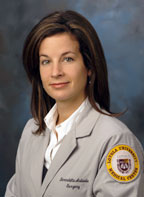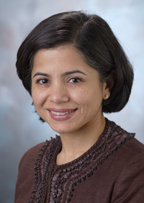Comparison of Academic Productivity and Funding Support between United States and International Medical Graduate Vascular Surgeons. Journal Article
Local Library Link: Find It @ Loyola
| Authors: | Alnahhal, KI; Lingutla, R; Penukonda, S; Irshad, A; Kumar, S; Aulivola, B; Salehi, P |
| Article Title: | Comparison of Academic Productivity and Funding Support between United States and International Medical Graduate Vascular Surgeons. |
| Abstract: | OBJECTIVE: The demand for vascular surgeons in the United States (US) stands to far exceed the current supply. International Medical Graduates (IMGs) are not only vital to meeting the country's growing healthcare needs, but also help to advance clinical research and medical education in the field of vascular surgery. Nearly 17% of practicing vascular surgeons in the U.S. are IMGs, yet little is known about their relative contributions to academic vascular surgery. Our study aims to compare the academic profiles and funding support for IMG vascular surgeons to that of their US medical graduate (USMG) counterparts. METHODS: A cross-sectional study was performed on all IMG and USMG academic vascular surgeons practicing in U.S.-based hospitals with vascular surgery residency and/or fellowship programs. In addition to the baseline surgeon characteristics, academic profiles and research output were also collected. Furthermore, the National Institutes of Health (NIH) research reporting tool and open payments database were queried for any funding/payments to surgeons in both groups. Matching for year of vascular surgery training program graduation was performed where appropriate. RESULTS: A total of 908 academic vascular surgeons were included, 759 (83.6%) were USMGs, while 149 (16.4%) were IMGs. The median year of graduation was comparable between the two groups, but USMGs had a significantly higher proportion of female surgeons (23.6% vs. 10.7%; P = .0003). There were no significant differences in the academic profiles and leadership positions between the two groups. While research productivity is similar between the two groups, IMG surgeons were more likely to have first or senior-authorship papers (47.1% vs. 37.5%; P.001). Additionally, faculty departments chaired/cheifed by a USMG were less likely to be staffed with IMG vascular surgeons (1.6 vs. 3.1 surgeons; P.0001). Following grant analysis, USMG surgeons were more likely to receive NIH R01 grants (5.7% vs. 1.3%; P=.026). R01-funded surgeons had significantly greater research output by number of publications (121 vs. 47.5), citations (3872 vs. 938), H-index (32 vs. 17.5) and average journal impact factor (Journal IF>10: 86.7% vs. 33.3%) (all P.001). CONCLUSIONS: The efforts to further diversify vascular surgery are vital to better serving an increasingly diverse US population, amidst growing disparities in healthcare. Though IMGs account for a minority of academic vascular surgeons, and they contribute significantly to published research, they are less likely to receive NIH R01 funding, warranting further investigation. |
| Journal Title: | Journal of vascular surgery |
| ISSN: | 1097-6809; 0741-5214 |
| Publisher: | Mosby, Inc |
| Date Published: | 2023 |


